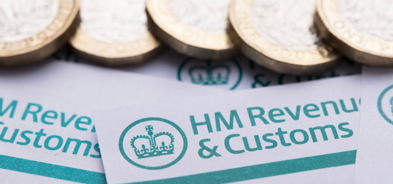Which is better - a pension or an ISA?
The popularity of ISAs has continued in recent years as more and more people take advantage of tax-efficient savings. Over the same time period many people have called into question the value of pensions, causing some to ask whether an ISA is actually a better bet when it comes to retirement saving. Undoubtedly both have their benefits but when it comes to saving for retirement, which is better?
The value of investments can fall as well as rise and that you may not get back the amount you originally invested.
Nothing in these briefings is intended to constitute advice or a recommendation and you should not take any investment decision based on their content.
Any opinions expressed may change or have already changed.
Written by Tim Stalkartt
Published on 07 Jan 20142 minute read

Tax implications
With pensions you get tax relief up front on contributions so a contribution of £100 becomes £125 in your pension - and higher-rate tax payers can claim higher relief. As growth is on the higher sum, this gives pensions an important advantage, as there is no tax relief available on payments into an ISA. However, investments held in both ISAs and pensions enjoy the same tax-favoured treatment of income and capital gains so there is no difference there. When you come to withdraw money from your ISA no tax is payable whereas pension income is taxable. However, you can take up to a quarter of your pension fund as tax free cash.
Complexity
Pensions are generally more complex than ISAs, and governments have fiddled with pension rules in recent times, which has led to uncertainty.
Access to funds
The other key difference is that you can access your ISA at any time - you have to be at least 55 to benefit from your pension. However, having free access to your money may actually make it more tempting to spend the money saved in your ISA.
Our view
On balance my preference is for pension saving as the primary source of funding for retirement, especially for higher-rate taxpayers who might be basic-rate taxpayers in retirement. However, in my view those that are best prepared for retirement have broadly equal pots of pension and non-pension assets such as ISAs, which provides greater flexibility for retirement years. Both ISAs and pensions are good vehicles for saving for financial independence and the bottom line is: however you go about it, just make sure you are saving.
| Pension | Non pension in an ISA | |
| Investment | £50,000* | £30,000 |
| Value in 20 years assuming 5% return (3% inflation, 2% real return) | £132,665 | £79,599 |
| 25% of pension can be withdrawn tax free | £33,166 | - |
| 75% of is used to provide a taxable income | £99,499 | - |
| 4% withdrawal from tax free part | £1,327 | £3,184 |
| 4% withdrawal from taxable part | £3,980 | |
| Tax due @ 20% on taxable part** | £796 | £0 |
| Net income | £4,511 | £3,184 |
*Assumes tax relief at 40%.
**The position above assumes that when you take income from the pension it is taxed at 20%. This would currently apply if total income from all sources including that withdrawn from pensions is less than £41,450. You would need a pension fund in excess of £1,000,000 to generate more than this level of income from pensions alone if you restrict annual withdrawals to 4% of the capital value.
Get insights and events via email
Receive the latest updates straight to your inbox.
You may also like…


Investing


